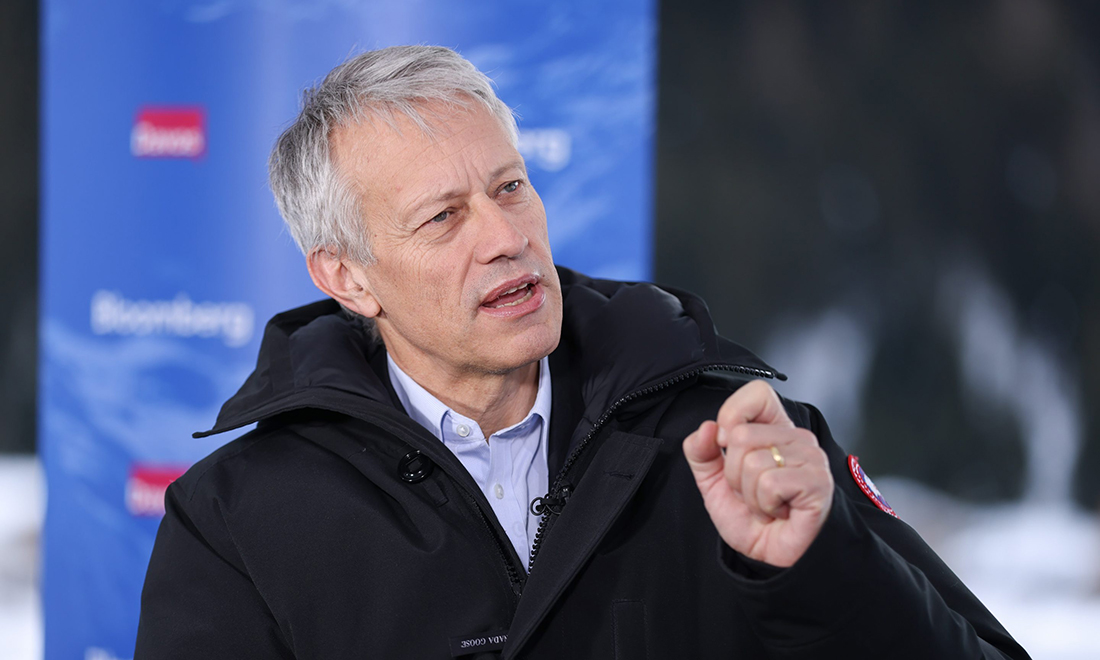
可口可乐公司(Coca-Cola)坚持涨价,没有采取百事公司(PepsiCo)的策略,避开了导致竞争对手陷入困境的通胀问题。相比之下,百事公司的做法导致其与法国超市巨头家乐福(Carrefour)公开交恶。
碳酸饮料生产商百事与家乐福发生冲突,后者声称由于“缩水式通胀”将百事的产品下架。缩水式通胀是指产品质量或数量下降,但价格不变。百事公司否认了家乐福的指控,称其商品被下架的原因是合同谈判。
百事公司最大的竞争对手、碳酸软饮料行业的市场领导者可口可乐公司,通过确立并坚持长期目标,似乎已经避开了类似的状况。
可口可乐公司的首席执行官詹鲲杰(James Quincey)表示,公司努力避免与供应商发生摩擦,但在当前的全球经济环境下,不断变化的通胀率可能会产生问题。
詹鲲杰在瑞士达沃斯告诉美国消费者新闻与商业频道(CNBC):“我们有与供应商打交道的长期策略,我们着眼于建立长期关系。鉴于我们的规模,我们希望保证长期供应安全,我们的首要问题是获得足够的供应,我们会达成长期定价协议,然后再加上对冲。”
“我们几乎可以平稳度过经济周期。我们不会很快涨价,也不会快速降价,我们喜欢着眼于整个周期,这能够帮助我们稳定业务,因此我们的定价不会大幅波动,这是我们经过深思熟虑采取的策略。”
据《金融时报》(Financial Times)报道,2023年第二季度,可口可乐的价格同比上涨了10%,但该公司公布的最新数据显示,这对公司的利润几乎没有任何影响。
事实上,可口可乐公司在2023年10月发布的2023年第三季度的财报显示,净收入增长了8%,达到120亿美元,浓缩液销量增长了2%,詹鲲杰形容这是业绩“稳定”的一个季度。
相比之下,百事公司在2023年第二季度涨价15%,有机销量却下滑了2.5%,但到第三季度,公司的收入达到234.5亿美元,超过了分析师预期的233.9亿美元。
詹鲲杰并不否认一些地区出现了问题。他说:“不同国家有不同的环境,公司与零售合作伙伴或多或少会有一些摩擦,但归根结底我们会坚持我们的策略,即赢得定价权。”
詹鲲杰补充道,公司的策略是确保凭借公司的策略和专长加快饮料业务的增长,而不是依靠单个供应商单独运营。他指出:“这对他们来说是有益的。”
“缩水式通胀”之争
囊中羞涩的消费者和希望在生活成本危机中获胜的政客们,令零售商感到压力。
法国超市巨头家乐福表示,计划采取一些行动应对这个问题,今年早些时候,家乐福声称将在法国、意大利、西班牙和比利时下架百事公司涨价的产品,例如多力多滋(Doritos)、奇多(Cheetos)和七喜(7up)等。
家乐福最大的竞争对手勒克莱尔超市集团(E. Leclerc)的董事长形容家乐福的做法是一次“力量的展现”,但这并没有吸引其他主要零售商跟进。
虽然家乐福的做法在业内被大加赞扬,百事公司却声称家乐福对事件的描述并不真实。
1月9日,百事公司的代表对《华尔街日报》表示,当家乐福声称已经在部分门店禁售百事公司的产品时,该超市“错误地描述了事件链,真令人惋惜”。
发言人称:“由于没有就新合同达成一致,我们在年底停止向家乐福供货,他们知道可能出现这种情况。我们希望尽快就合同条款达成一致,使我们的产品可以重新上架,供消费者享用。”
但家乐福却对这种说法表示质疑,并告诉《华尔街日报》:“家乐福集团已经做出了这个决定。“
任何一方目前均未回复《财富》杂志的置评请求。(财富中文网)
译者:刘进龙
审校:汪皓
可口可乐公司(Coca-Cola)坚持涨价,没有采取百事公司(PepsiCo)的策略,避开了导致竞争对手陷入困境的通胀问题。相比之下,百事公司的做法导致其与法国超市巨头家乐福(Carrefour)公开交恶。
碳酸饮料生产商百事与家乐福发生冲突,后者声称由于“缩水式通胀”将百事的产品下架。缩水式通胀是指产品质量或数量下降,但价格不变。百事公司否认了家乐福的指控,称其商品被下架的原因是合同谈判。
百事公司最大的竞争对手、碳酸软饮料行业的市场领导者可口可乐公司,通过确立并坚持长期目标,似乎已经避开了类似的状况。
可口可乐公司的首席执行官詹鲲杰(James Quincey)表示,公司努力避免与供应商发生摩擦,但在当前的全球经济环境下,不断变化的通胀率可能会产生问题。
詹鲲杰在瑞士达沃斯告诉美国消费者新闻与商业频道(CNBC):“我们有与供应商打交道的长期策略,我们着眼于建立长期关系。鉴于我们的规模,我们希望保证长期供应安全,我们的首要问题是获得足够的供应,我们会达成长期定价协议,然后再加上对冲。”
“我们几乎可以平稳度过经济周期。我们不会很快涨价,也不会快速降价,我们喜欢着眼于整个周期,这能够帮助我们稳定业务,因此我们的定价不会大幅波动,这是我们经过深思熟虑采取的策略。”
据《金融时报》(Financial Times)报道,2023年第二季度,可口可乐的价格同比上涨了10%,但该公司公布的最新数据显示,这对公司的利润几乎没有任何影响。
事实上,可口可乐公司在2023年10月发布的2023年第三季度的财报显示,净收入增长了8%,达到120亿美元,浓缩液销量增长了2%,詹鲲杰形容这是业绩“稳定”的一个季度。
相比之下,百事公司在2023年第二季度涨价15%,有机销量却下滑了2.5%,但到第三季度,公司的收入达到234.5亿美元,超过了分析师预期的233.9亿美元。
詹鲲杰并不否认一些地区出现了问题。他说:“不同国家有不同的环境,公司与零售合作伙伴或多或少会有一些摩擦,但归根结底我们会坚持我们的策略,即赢得定价权。”
詹鲲杰补充道,公司的策略是确保凭借公司的策略和专长加快饮料业务的增长,而不是依靠单个供应商单独运营。他指出:“这对他们来说是有益的。”
“缩水式通胀”之争
囊中羞涩的消费者和希望在生活成本危机中获胜的政客们,令零售商感到压力。
法国超市巨头家乐福表示,计划采取一些行动应对这个问题,今年早些时候,家乐福声称将在法国、意大利、西班牙和比利时下架百事公司涨价的产品,例如多力多滋(Doritos)、奇多(Cheetos)和七喜(7up)等。
家乐福最大的竞争对手勒克莱尔超市集团(E. Leclerc)的董事长形容家乐福的做法是一次“力量的展现”,但这并没有吸引其他主要零售商跟进。
虽然家乐福的做法在业内被大加赞扬,百事公司却声称家乐福对事件的描述并不真实。
1月9日,百事公司的代表对《华尔街日报》表示,当家乐福声称已经在部分门店禁售百事公司的产品时,该超市“错误地描述了事件链,真令人惋惜”。
发言人称:“由于没有就新合同达成一致,我们在年底停止向家乐福供货,他们知道可能出现这种情况。我们希望尽快就合同条款达成一致,使我们的产品可以重新上架,供消费者享用。”
但家乐福却对这种说法表示质疑,并告诉《华尔街日报》:“家乐福集团已经做出了这个决定。“
任何一方目前均未回复《财富》杂志的置评请求。(财富中文网)
译者:刘进龙
审校:汪皓
Coca-Cola is skirting around the inflation issues tripping up its competitors by sticking by its price hikes, steering clear of PepsiCo’s tactic which resulted in a public spat with French supermarket giant Carrefour.
Fizzy drink maker Pepsi is embroiled in a conflict with Carrefour, with the latter claiming it had pulled Pepsi products from shelves because of “shrinkflation”—where product quality or quantity diminishes, but the price stays the same. PepsiCo denies this, saying the vanishing items are actually the result of contract negotiations.
Pepsi’s biggest rival—and the carbonated soft drink industry’s market leader—Coca-Cola, seems to have maneuvered itself out of such situations by establishing long-term goals and standing by them.
The brand’s CEO James Quincey said it works hard to avoid friction with suppliers, but in a global economy with varying inflation rates that can pose problems.
“When we deal with our own suppliers we have a very long-standing approach which is to go for very long-term relationships,” Quincey told CNBC at Davos. “We like, given our size, to get long-term security of supply—that’s our number one problem, is getting enough—we get long-term pricing agreements and then we layer on hiding.
“We very much smooth out the cycle. We don’t go up very quickly and we don’t tend to crash back down, we like the idea of seeing the cycle through—it really helps us stabilize our business which is why we’re not so spiky on pricing, it’s a deliberate approach.”
Coca-Cola prices were up 10% in Q2 2023 compared to a year prior, the Financial Times reported, though the company’s latest update showed this had little effect on the bottom line.
Indeed an October release from Coca-Cola for Q3 2023 said net revenues grew 8% to $12 billion with a 2% growth in concentrate sales, a performance Quincey described as a “solid” quarter.
By contrast, PepsiCo reported a 15% rise in prices in Q2 2023 while organic volume slipped by 2.5%, but by Q3 was also beating analysts’ estimates with revenue coming in at $23.45 billion instead of the $23.39 billion expected.
Quincey didn’t deny that some territories were coming with their own problems, adding: “In different countries in different environments there can be more or less friction with some of our retail partners but in the end we come back to our strategy, which is to earn our right to the pricing.”
He added that the company’s strategy is to ensure they can grow the beverage business faster with their strategy and expertise than by individual suppliers operating alone: “That’s a positive story for them,” he added.
“Shrinkflation” battle
Retailers are facing pressure from cash-strapped consumers and politicians looking for a win in the cost of living crisis.
French supermarket giant Carrefour said it wanted to do something about the issue, and earlier this year claimed it was pulling PepsiCo products like Doritos, Cheetos, and 7up from its shelves in France, Italy, Spain, and Belgium, following price increases.
The group’s move was described as a “show of strength” by the chairman of Carrefour’s biggest rival, E.Leclerc, but has struggled to persuade other major retailers to follow suit.
However, although the action has been lauded by the industry, PepsiCo claims Carrefour’s version of events is simply not true.
A representative for PepsiCo told the Wall Street Journal on Jan 9 that Carrefour had “regrettably mischaracterized the chain of events” when the supermarket claimed it had banned the supplier’s products in some of its stores.
“Given the lack of agreement on a new contract, we stopped supplying to Carrefour at the end of the year, something they were aware could happen. We hope we can agree on terms soon so our products can be back on their shelves for consumers to enjoy,” the spokesperson said.
Carrefour in turn disputed this account, telling the WSJ: “We, at the Carrefour Group, have taken this decision.”
Neither party responded to Fortune’s request for comment at the time.






